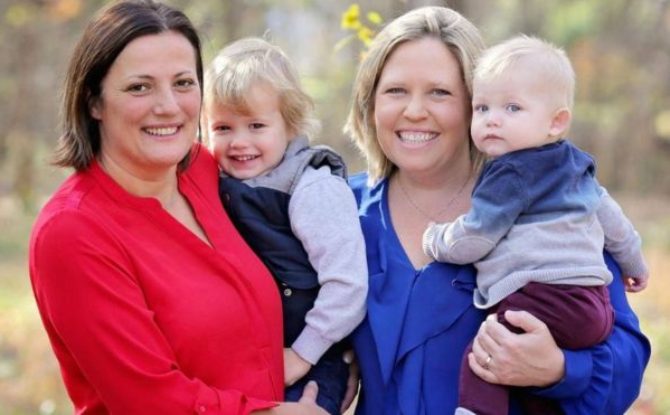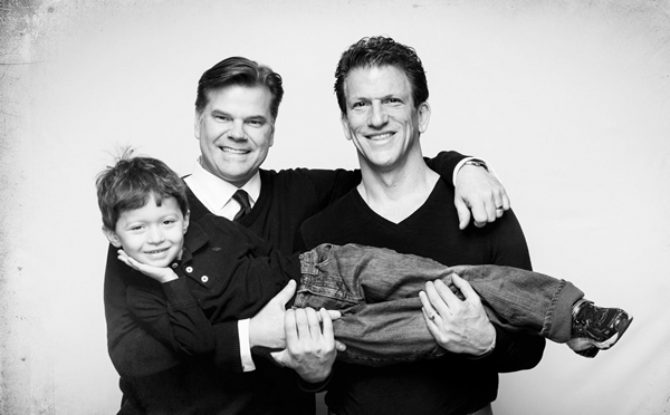A same-sex couple is suing the US government alleging discrimination because one of their children was not granted American citizenship.
US citizen Allison Blixt and her Italian wife Stefania Zaccari had two babies in London, England.
The spouses each carried one child to term using their own eggs and an unknown sperm donor.
American citizenship was granted to Ms Blixt’s son, Massimiliano, but not to Ms Zaccari’s boy, says the lawsuit.
The US Department of State has not commented on the allegations.
According to the agency’s website, “at least one biological parent must have been a US citizen when the child was born” for a child to qualify for birthright citizenship.
Ms Blixt and Ms Zaccari are listed on both children’s birth certificates, and English law recognises them as the boys’ parents, according to their lawsuit filed in Washington DC.
The court filing says the US consulate denied citizenship to Ms Zaccari’s child, Lucas, now two years old, on the grounds that he was not a blood relation and that he was born “out of wedlock”.
However, lawyers for Ms Zaccari and Illinois-born Ms Blixt say they were legally married in their adopted home of England before their sons’ births.
The lawsuit says that at the US consulate “Stefania and Allison were asked a series of invasive and legally irrelevant questions about how their children were conceived and born”.
The decision violates the Immigration and Nationality Act establishing that “babies born abroad are US citizens at birth when one of the child’s parents is a married United States citizen”, says the court filing.
After a law against same-sex marriage was overturned in the US in 2013, same-sex couples were allowed – like heterosexual couples – to bring their foreign spouses into America.
But the same ruling did not cover the children of same-sex couples, and legal advocates say this is discriminatory.
Ms Blixt told the Washington Post that she declined the offer to become her son’s legal stepmother and bring him to the US as an immigrant.
BBC.com January 22,2018
Click here to read the entire article.


















